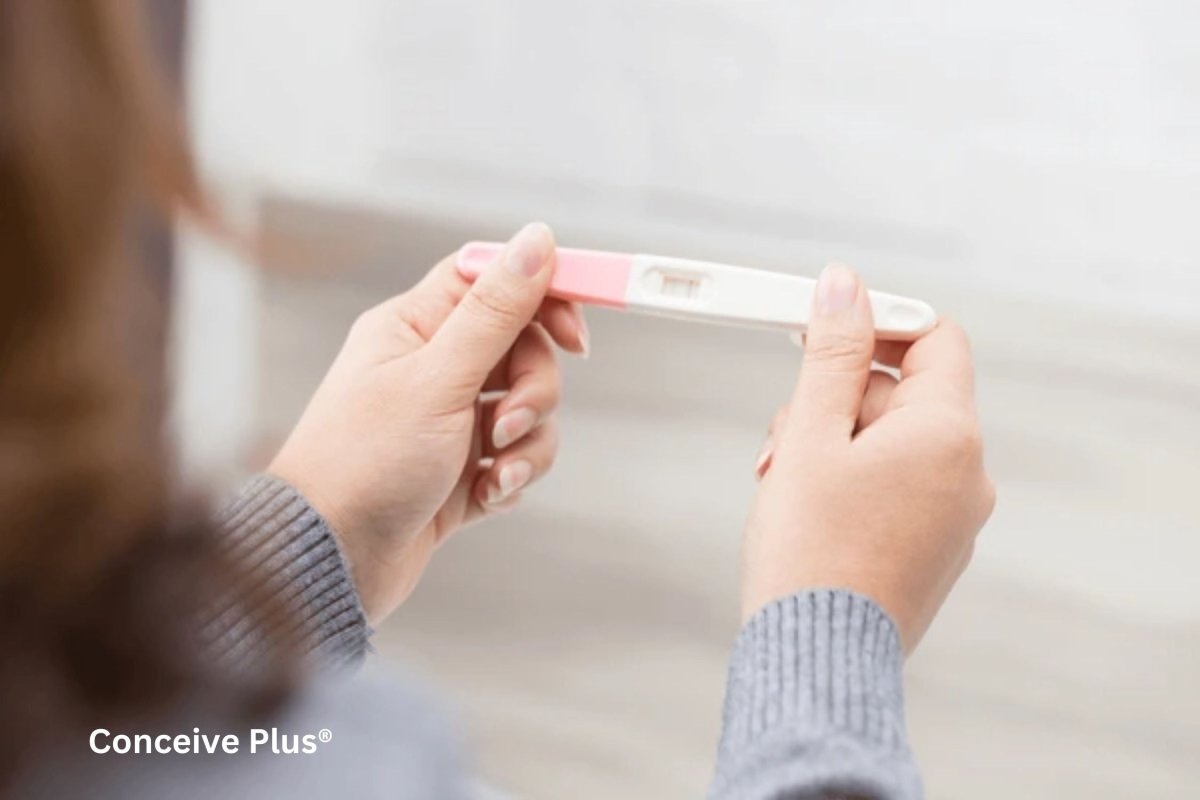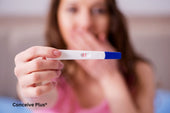How to Know if Girlfriend is Pregnant: A Comprehensive Guide

If you and your partner suspect that she might be expecting, you may be wondering about the earliest signs and how to know if girlfriend is pregnant. Understanding the indicators of pregnancy can help you both prepare for the next steps. Whether the pregnancy is planned or unexpected, knowing what to look for can provide clarity and guidance. Common signs such as a missed period, nausea, fatigue, and breast tenderness can be early clues, but these symptoms can vary from person to person. To get a clearer answer, we’ll explore these symptoms in more detail, along with the best ways to confirm a pregnancy and what steps to take next.
Recognizing Early Pregnancy Symptoms
One of the first indicators of pregnancy is a missed period. While this is a common sign, some women have irregular cycles, making it difficult to rely on this alone. Other early symptoms include:
-
Missed Period
A missed menstrual cycle is often the first and most obvious sign of pregnancy. However, it’s important to note that stress, hormonal imbalances, or other medical conditions can also cause irregular periods. If your girlfriend’s period is late, it’s worth considering pregnancy as a possibility [1].
If you’re concerned about the possibility of pregnancy, it’s also important to understand the risks associated with precum, as explored in our article, Can You Get Pregnant from Precum? Exploring the Risks and Chances.
-
Nausea and Morning Sickness
Nausea, often referred to as morning sickness, is a classic pregnancy symptom. Despite its name, it can occur at any time of the day. This symptom typically starts around the sixth week of pregnancy but can appear earlier for some women [2].
-
Breast Changes
Pregnancy hormones can cause the breasts to become tender, swollen, or sensitive. Some women also notice darkening of the areolas or visible veins on their breasts [3].
-
Fatigue
Feeling unusually tired or exhausted is another common early sign of pregnancy. This is due to the body working overtime to support the developing embryo [4].
-
Frequent Urination
Increased urination is a result of hormonal changes and the growing uterus pressing on the bladder. If your girlfriend is making more trips to the bathroom than usual, it could be a sign of pregnancy [5].
-
Food Aversions or Cravings
Sudden changes in taste preferences, such as craving certain foods or being repelled by others, are often linked to pregnancy. These changes are driven by hormonal fluctuations [6].
If you are asking, how can you tell if your gf is pregnant?, these symptoms may offer early clues. However, symptoms can vary significantly between individuals, and some women may not experience noticeable changes in the first few weeks.
Home Pregnancy Tests and Their Accuracy
If you’re wondering how can you tell if your girlfriend is pregnant?, a home pregnancy test is the easiest way to get a preliminary answer. These tests detect human chorionic gonadotropin (hCG), a hormone produced after implantation.
- When to Take a Test: Pregnancy tests are most accurate when taken after a missed period. Some tests claim to detect pregnancy earlier, but for the best results, wait at least one week after a missed period.
- How to Use It Correctly: Following the instructions carefully can prevent false negatives. Using the first urine of the morning, when hCG levels are most concentrated, can improve accuracy.
- What to Do After a Positive Test: If the test is positive, it’s important to schedule a visit to a healthcare provider for confirmation through a blood test or ultrasound.
Medical Confirmation and Prenatal Care:
While the symptoms listed above can provide clues, they are not definitive proof of pregnancy. To accurately determine whether your girlfriend is pregnant, you’ll need to rely on more concrete methods.
1. Home Pregnancy Tests
Home pregnancy tests are widely available, affordable, and easy to use. These tests detect the presence of human chorionic gonadotropin (hCG), a hormone produced during pregnancy, in urine. For the most accurate results, it’s recommended to take the test a week after a missed period.
2. Blood Tests
A blood test conducted by a healthcare professional can detect pregnancy earlier than a home test. Blood tests measure the exact amount of hCG in the bloodstream, providing a more sensitive and accurate result.
3. Ultrasound
An ultrasound is the most definitive way to confirm pregnancy. This imaging technique allows healthcare providers to visualize the developing embryo and determine the gestational age. However, ultrasounds are typically performed after a positive pregnancy test.
Early prenatal care is essential in monitoring pregnancy progression, identifying potential risks, and ensuring the well-being of both mother and child.
Unexpected Pregnancy: Handling the Emotional and Practical Aspects
If my girlfriend is pregnant and the pregnancy was unplanned, emotions can range from excitement to anxiety. Open communication is key to navigating the situation together.
- Discussing the Future: Conversations about personal feelings, financial stability, and future plans should be approached with care and honesty.
- Seeking Support: Whether through family, friends, or professional counseling, having a support system in place can help both partners manage emotions and decisions.
- Exploring Options: Understanding all available options, including parenting, adoption, and other choices, ensures an informed decision that aligns with both partners' values and circumstances.
Understanding False Positives and Other Medical Conditions
Occasionally, pregnancy test results can be misleading. A false positive may occur due to:
- Chemical pregnancies, where an early miscarriage happens before pregnancy is confirmed via ultrasound.
- Certain medications, such as fertility treatments, that contain hCG.
- Medical conditions like ovarian cysts or hormone imbalances that can affect test results.
If symptoms persist but pregnancy tests remain negative, a medical checkup is advised to rule out other health concerns.
The Role of Lifestyle in Supporting Pregnancy
If pregnancy is confirmed, lifestyle changes are necessary to support maternal and fetal health. Encouraging a healthy lifestyle includes:
- Nutrition: A well-balanced diet rich in folic acid, iron, and essential vitamins is crucial for fetal development.
- Avoiding Harmful Substances: Alcohol, tobacco, and certain medications can negatively impact pregnancy.
- Exercise and Rest: Moderate physical activity and adequate sleep contribute to a healthier pregnancy.
- Stress Management: Emotional well-being is essential for a smooth pregnancy journey.
When to See a Doctor Immediately
Certain symptoms warrant immediate medical attention during early pregnancy. These include:
- Severe Abdominal Pain: Intense pain on one or both sides of the lower abdomen may indicate an ectopic pregnancy, where the fertilized egg implants outside the uterus, which can be life-threatening if not treated promptly.
- Heavy Bleeding or Clotting: While light spotting is common in early pregnancy, heavy bleeding with clotting may signal a miscarriage or another serious issue that requires urgent medical care.
- Dizziness or Fainting: Frequent dizziness or fainting spells could indicate anemia, dehydration, or more serious underlying health concerns.
- High Fever or Unusual Discharge: A fever above 100.4°F (38°C) accompanied by chills, pain, or abnormal discharge may indicate an infection that could affect pregnancy health.
- Severe Nausea and Vomiting: While morning sickness is common, excessive vomiting leading to dehydration (hyperemesis gravidarum) can be dangerous and requires medical intervention.
Seeking prompt medical care ensures that potential complications, such as ectopic pregnancy, miscarriage, or other health risks, are addressed quickly. Ignoring these warning signs may lead to more serious consequences, so it’s always best to err on the side of caution and consult a healthcare provider.
The Bottom Line
Knowing how to know if girlfriend is pregnant involves recognizing early symptoms, using home pregnancy tests, and seeking medical confirmation. While symptoms like a missed period, nausea, and fatigue can provide clues, home pregnancy tests and blood tests offer more definitive answers. If you find yourself thinking, “My girlfriend is pregnant,” it’s essential to approach the situation with care, support, and open communication.
Remember, pregnancy is a significant life event that requires thoughtful consideration and planning. By staying informed and working together, you can navigate this journey with confidence and clarity. Whether you’re preparing for parenthood or exploring other options, understanding how to know if your girlfriend is pregnant is the first step toward making informed decisions.
References:
- Henrik A. Kolstad, Jens Peter Bonde, Niels H. Hjøllund, Tina K. Jensen, Tine B. Henriksen, Erik Ernst, Aleksander Giwercman, Niels Erik Skakkebæk, Jørn Olsen. Menstrual cycle pattern and fertility: a prospective follow-up study of pregnancy and early embryonal loss in 295 couples who were planning their first pregnancy. Fertility and Sterility. Volume 71, Issue 3. 1999. Pages 490-496. ISSN 0015-0282. https://doi.org/10.1016/S0015-0282(98)00474-9.
- Gadsby R, Barnie-Adshead AM, Jagger C. A prospective study of nausea and vomiting during pregnancy. Br J Gen Pract. 1993 Jun;43(371):245-8. Erratum in: Br J Gen Pract 1993 Aug;43(373):325. PMID: 8373648; PMCID: PMC1372422.
- Alex A, Bhandary E, McGuire KP. Anatomy and Physiology of the Breast during Pregnancy and Lactation. Adv Exp Med Biol. 2020;1252:3-7. doi: 10.1007/978-3-030-41596-9_1. PMID: 32816256.
- Effati-Daryani F, Mohammad-Alizadeh-Charandabi S, Mohammadi A, Zarei S, Mirghafourvand M. Fatigue and sleep quality in different trimesters of pregnancy. Sleep Sci. 2021 Jan-Mar;14(Spec 1):69-74. doi: 10.5935/1984-0063.20200091. PMID: 34917276; PMCID: PMC8663733.
- Wrenn K. Dysuria, Frequency, and Urgency. In: Walker HK, Hall WD, Hurst JW, editors. Clinical Methods: The History, Physical, and Laboratory Examinations. 3rd edition. Boston: Butterworths; 1990. Chapter 181. Available from: https://www.ncbi.nlm.nih.gov/books/NBK291/
- Yalew A, Tekle Silasie W, Anato A, Fikrie A. Food aversion during pregnancy and its association with nutritional status of pregnant women in Boricha Woreda, Sidama Regional State, Southern Ethiopia, 2019. A community based mixed crossectional study design. Reprod Health. 2021 Oct 18;18(1):208. doi: 10.1186/s12978-021-01258-w. PMID: 34663373; PMCID: PMC8525039.



















